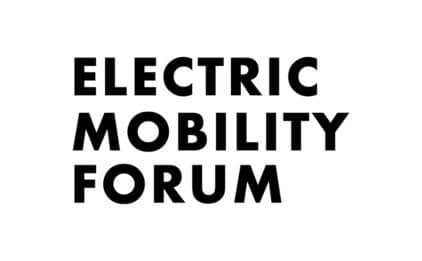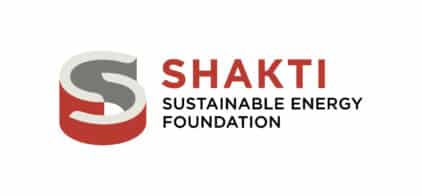Equitable Transportation and Accessible Neighborhoods
Log in to a free account to view this content.
Created in partnership with 


The transport sector is the largest user of oil and second largest source of CO2 emissions world-wide. The Indian transportation sector accounts for one-third of the total crude oil consumed in the country, with 80% consumed by road transportation alone. It also accounts for around 11% of total CO2 emissions from fuel combustion.
India is making commitments to adopt electric vehicles (EV) as one strategy for tackling the problem of growing air pollution. As per projections, the EV fleet is only expected to increase, and there are several topics that we need to look at while making the transition from internal combustion engines (ICE) to electric technology.
With our EV fleets growing in size, we can expect a significant impact on the power demand in India. It is important to understand potential challenges that can affect EV adoption. For instance, what happens during peak charging times? How does the chosen charging technology impact local grids? Also, how important is it to shift toward renewables as a source of energy generation to make the EV cycle greener?
In this webinar, experts from GIZ and PRDC will discuss the “Impact of Electric Vehicle (EV) Charging on the Local Grid” based on a study they performed to understand this topic.
Key points of discussion include:
The 1-hour session will include presentations followed by Q&A.
Speakers
Dr. Indradip Mitra, Senior Technical Advisor, GIZ GmbH
Dr. Mitra is presently working as a Senior Technical Advisor in the Indo- German Energy Programme of the German International Cooperation (GIZ GmbH) in India. He is the thematic focal point on E-Mobility in GIZ India. He was the Team Leader of the Indo – German collaborative Project ‘SolMap’ which is funded by German Federal Ministry of Environment (BMUB). SolMap supported MNRE and NIWE’s Solar Radiation Resource Assessment (SRRA) initiative. He is also closely associated with the ongoing Green Energy Corridors (GEC) project focusing on large scale integration of renewable energy into the Indian electricity grid. He has been working in the domain of renewable energy and energy efficiency since last 22 years in India and Europe. He has served the position of a Research Scientist in The Cyprus Institute, Cyprus; a Visiting Scientist in the Fraunhofer Institute for Wind and Energy Systems (IWES), Kassel (now known as Fraunhofer IEE), Germany and a Research Associate in The Energy and Resources Institute (TERI), New Delhi, India. He obtained his Doctorate in Electrical Engineering from University of Kassel, Germany; his Masters in Renewable Energy from University of Oldenburg, Germany and his Post Graduate Diploma in Energy Management from Indian Institute of Social Welfare and Business Management (IISWBM), India. He has over 30 publications in international journals, conferences and books, and was awarded as the ‘Energy Engineer of the Year 2013’ by the Indian chapter of the Association of the Energy Engineer (AEE), USA.
Mr. Sudhanshu Mishra, Technical Expert/Advisor, GIZ
Mr. Mishra is currently working with German Development Cooperation (GIZ) under Indo-German Energy programme as a Technical Expert/Advisor in India. Mainly focusing on rooftop Solar PV, electric vehicle, and energy storage development across the states in India through interventions in regulatory & policy measures. With his expertise and experiences, he provides support to the ongoing bilateral Indo-German Solar Energy Programme (IGSEP) with partner Ministry MNRE. Moreover, he is a member of E-mobility project for supporting and implementing the programme along with designated other partners. For last 2.5 years he has been consistently involved in designing and implementing innovative assignments such as Solar P2P Platform Development for Rural Electrification & Empowerment in Rural Assam and hybrid technology Photovoltaic Thermal (PVT) development in India under the capacity of project manager. Mr. Mishra has more than 8 years of professional experiences in the development of low-carbon technology growth across energy domain. He obtained his Master’s of Science (M.Sc.) in Physics specialized in Advanced Nuclear and Particle Physics from University of Allahabad and Master’s of Technology (M.Tech.) in Renewable Energy Engineering and Management from TERI University, New Delhi.
Dr. Chandrasekhar Reddy Atla, Principal Engineer at PRDC
Dr. Atla has been associated with PRDC for the last 12 years. He is a member of IEEE and IEEE-PES ExeCom and has published 25 publications in international and national conferences and journals. He has executed and guided about 10 M.Tech projects and currently three PhD students. He received his B.Tech degree in Electrical Engineering from Sri Venkateswara University, Tirupati, INDIA, in 2003; M.Tech degree from National Institute of Technology-Karnataka, INDIA, in 2008; his Ph.D. from Visvesvaraya Technological University, Karnataka, INDIA, in 2017. Dr. Atla’s areas of interest include: Electric Vehicles and its impacts on grid, Battery Energy Storage System and its services to grid, Power system operation, Power system planning, Large scale renewable integration and its impacts, Energy Management Systems, Hydro Thermal Coordination, Wind, Solar and Load Forecasting, Insulation coordination, EMTP studies.